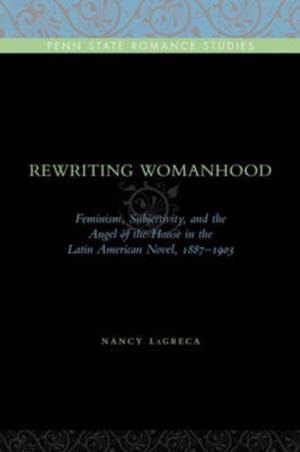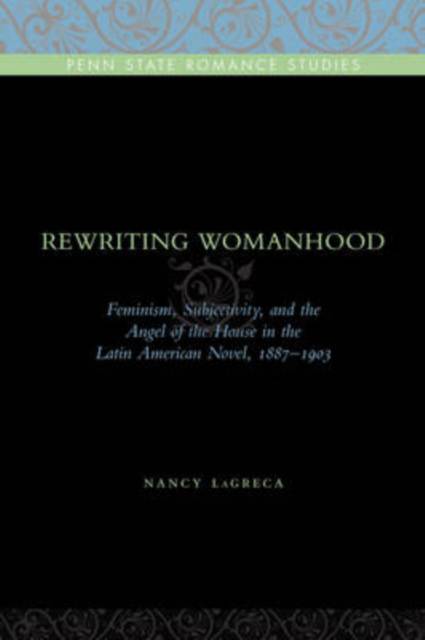
- Retrait gratuit dans votre magasin Club
- 7.000.000 titres dans notre catalogue
- Payer en toute sécurité
- Toujours un magasin près de chez vous
- Retrait gratuit dans votre magasin Club
- 7.000.0000 titres dans notre catalogue
- Payer en toute sécurité
- Toujours un magasin près de chez vous
Rewriting Womanhood
Feminism, Subjectivity, and the Angel of the House in the Latin American Novel, 1887-1903
Nancy LagrecaDescription
In Rewriting Womanhood, Nancy LaGreca explores the subversive refigurings of womanhood in three novels by women writers: La hija del bandido (1887) by Refugio Barragán de Toscano (Mexico; 1846-1916), Blanca Sol (1888) by Mercedes Cabello de Carbonera (Peru; 1845-1909), and Luz y sombra (1903) by Ana Roqué (Puerto Rico; 1853-1933). While these women were both acclaimed and critiqued in their day, they have been largely overlooked by contemporary mainstream criticism. Detailed enough for experts yet accessible to undergraduates, graduate students, and the general reader, Rewriting Womanhood provides ample historical context for understanding the key women's issues of nineteenth-century Mexico, Peru, and Puerto Rico; clear definitions of the psychoanalytic theories used to unearth the rewriting of the female self; and in-depth literary analyses of the feminine agency that Barragán, Cabello, and Roqué highlight in their fiction.
Rewriting Womanhood reaffirms the value of three women novelists who wished to broaden the ruling-class definition of woman as mother and wife to include woman as individual for a modern era. As such, it is an important contribution to women's studies, nineteenth-century Hispanic studies, and sexuality and gender studies.
Spécifications
Parties prenantes
- Auteur(s) :
- Editeur:
Contenu
- Nombre de pages :
- 216
- Langue:
- Anglais
- Collection :
- Tome:
- n° 6
Caractéristiques
- EAN:
- 9780271034393
- Date de parution :
- 01-02-09
- Format:
- Livre broché
- Format numérique:
- Trade paperback (VS)
- Dimensions :
- 152 mm x 229 mm
- Poids :
- 322 g

Les avis
Nous publions uniquement les avis qui respectent les conditions requises. Consultez nos conditions pour les avis.






